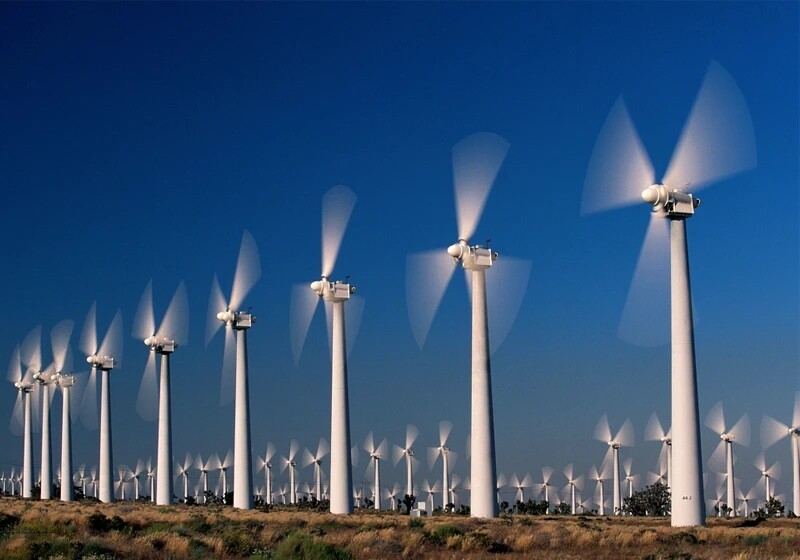Email format error
Email cannot be empty
Email already exists
6-20 characters(letters plus numbers only)
The password is inconsistent
Email format error
Email cannot be empty
Email does not exist
6-20 characters(letters plus numbers only)
The password is inconsistent


The Rise of Wind Power: A Breath of Fresh Air for the Future
In recent years, the world has witnessed a significant shift towards renewable energy sources, with wind power standing out as one of the most promising and rapidly growing sectors. As concerns over climate change and the depletion of fossil fuels escalate, nations around the globe are investing heavily in wind energy. This transformation isn't just about clean energy; it's also reshaping industries, economies, and our daily lives. Central to this revolution are the wind power equipment manufacturers, who play a crucial role in turning the wind into a viable source of electricity.
The Growing Importance of Wind Energy
Wind energy harnesses the power of the wind to generate electricity, and its importance cannot be overstated. Unlike fossil fuels, wind energy is renewable, abundant, and emits no greenhouse gases during operation. This makes it an essential component of the global effort to combat climate change and reduce our carbon footprint. Wind power is also becoming more cost-competitive with traditional energy sources, making it an attractive option for both governments and private investors.
The global capacity for wind power has been growing at an impressive rate. According to the Global Wind Energy Council (GWEC), the world’s wind power capacity reached 743 gigawatts (GW) by the end of 2020, with projections indicating further rapid growth in the coming years. Countries like China, the United States, and Germany are leading the charge, each investing billions of dollars into wind energy infrastructure.
The Role of Wind Power Equipment Manufacturers
At the heart of this expansion are wind power equipment manufacturers. These companies design, produce, and install the components necessary for wind turbines, including blades, generators, towers, and control systems. Without their innovation and expertise, the wind power industry would not be where it is today.
One of the key challenges for wind power equipment manufacturers is the need to produce increasingly efficient and durable turbines. As the demand for wind energy grows, so too does the need for turbines that can generate more electricity from the same amount of wind. This has led to significant advancements in turbine design, with modern turbines being taller, with longer blades, and more sophisticated control systems than ever before.
Additionally, wind power equipment manufacturers are constantly working to reduce the cost of wind energy. This involves not only improving the efficiency of turbines but also optimizing the manufacturing process and supply chain. By reducing costs, these manufacturers are helping to make wind energy more competitive with traditional fossil fuels, which is crucial for the continued growth of the industry.
Technological Innovations in Wind Power
Technological innovation is driving the wind power industry forward, with wind power equipment manufacturers at the forefront of this movement. One of the most exciting developments in recent years has been the rise of offshore wind farms. Offshore wind has several advantages over onshore wind, including stronger and more consistent winds, as well as the ability to build larger turbines.
Wind power equipment manufacturers have had to overcome numerous challenges to make offshore wind a reality. Building turbines that can withstand the harsh marine environment, including saltwater corrosion and powerful storms, has required innovative materials and engineering techniques. Moreover, transporting and installing these massive turbines in deep waters far from shore is a complex logistical challenge.
Another area of innovation is the development of floating wind turbines. Unlike traditional offshore turbines, which are anchored to the seabed, floating turbines are mounted on platforms that float on the water's surface. This technology allows for the deployment of wind turbines in deeper waters, where wind speeds are higher and more consistent. Floating wind turbines are still in the early stages of development, but they have the potential to unlock vast new areas for wind energy generation.
The Economic Impact of Wind Power
The growth of the wind power industry is having a profound impact on the global economy. The demand for wind turbines and other equipment has created hundreds of thousands of jobs around the world. According to the International Renewable Energy Agency (IRENA), the wind energy sector employed over 1.2 million people globally in 2020. This includes jobs in manufacturing, installation, maintenance, and operations.
Wind power equipment manufacturers are often located in regions where traditional manufacturing industries have declined, providing a much-needed boost to local economies. For example, in parts of the United States and Europe, old steel and automotive plants have been repurposed to produce wind turbine components, helping to revitalize these areas.
Furthermore, the wind power industry is attracting significant investment. In 2020, global investments in wind energy reached $142.7 billion, according to the GWEC. This influx of capital is driving further innovation and expansion in the industry, creating a positive feedback loop that is accelerating the transition to renewable energy.
Wind Power: A Sustainable Future
As the world continues to grapple with the challenges of climate change and energy security, wind power offers a sustainable and reliable solution. The advances being made by wind power equipment manufacturers are crucial to this effort, as they work to make wind energy more efficient, affordable, and accessible.
Looking to the future, it’s clear that wind power will play a central role in the global energy landscape. As technology continues to improve and costs continue to fall, we can expect to see wind energy becoming an even more dominant force in the coming decades. From offshore wind farms to floating turbines, the possibilities are vast, and the potential benefits are enormous.
In conclusion, wind power is more than just a renewable energy source; it's a beacon of hope for a sustainable future. With the continued support of governments, investors, and wind power equipment manufacturers, we are on the cusp of a new era in energy production—one that harnesses the power of nature to fuel our world for generations to come.

